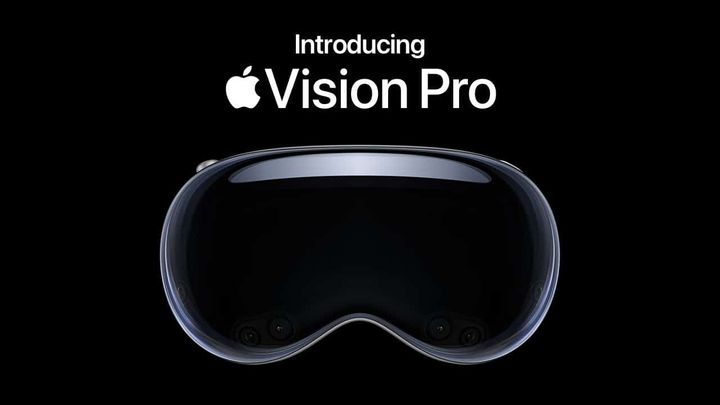Curious to know how quantum computing differs from regular computing? Here's a complete walkthrough of the fundamentals of both and how they compare.
Quantum computing is a rapidly-developing field that has the potential to revolutionize the world of technology. It involves concepts like entanglement and superposition, which are not present in traditional computing. In this article, learn about the differences between quantum computing and today's regular computing technologies.
What Is Traditional Computing?
Traditional computing is the use of regular computers and networks, incorporating elements like transistors, logic gates and binary code. The execution of instructions stored in memory is at the core of this type of computing technology. Traditional computers rely on a heat-driven process for computation, resulting in limited speed, power and accuracy. However, it remains a reliable solution used by many businesses and individuals today.

What Is Quantum Computing?
Quantum computing is a much more powerful and efficient computing system, which uses the principles of quantum physics to encode information. With quantum computing, data is stored in qubits — special particles that can exist in multiple states of energy simultaneously — allowing for greater accuracy, speed and processing power. In addition, quantum systems require less energy to achieve the same tasks as traditional computers.
Simple Explanation
Quantum computing is like having a superpower; it helps solve complex issues. Consider trying to put together a giant puzzle made up of a million parts. That would take a very long time to complete piece by piece, wouldn't it? What if you had a pair of magic glasses that allowed you to see through the fragments and quickly assemble them? Quantum computers function in this way.
Regular computers use bits, which can only be either 0 or 1. Yet qubits, which can simultaneously be 0 and 1, power quantum computers. It's like having two pairs of magic glasses that can simultaneously view jigsaw pieces through them from various angles. This implies that quantum computers can examine various alternatives simultaneously and arrive at the optimum solution more quickly than a conventional computer.
You may be asking what kinds of issues quantum computers can resolve now. They can, for example, determine the quickest route between several cities or look for novel treatments for diseases. Regular computers would need a lot of time to address these issues, but quantum computers can accomplish it more quickly.
We know very little about quantum computing as it is new. But, in the future, you'll probably be able to use a quantum computer to solve your challenging problems in a snap.
How Does a Quantum Computer Work?
A quantum computer is composed of a set of interconnected qubits, which are manipulated using an interface. Using sophisticated algorithms, the qubits can be programmed to perform calculations exponentially faster than traditional computers. When problems are solved, the result is outputted in the form of a “quantum state” — essentially a snapshot of all the data within a certain system. Additionally, quantum computing allows for complex operations to take place in parallel — making it capable of solving difficult problems far more quickly than its classical counterparts.
Simple Explanation
A quantum computer performs calculations by applying the laws of quantum physics. In contrast to conventional computers, which utilize bits to encode information, quantum computers use quantum bits or qubits. Since qubits can be in multiple states simultaneously, quantum computers are quicker than conventional computers.
Imagine playing "guess the number" to understand how a quantum computer functions. You have to predict a number between 1 and 100 in this game. To limit the choices, you can use queries like "Is the number even?" or "Is the number bigger than 50?" If you play this game on a conventional computer, you must check each number individually until it discovers the solution.
On the other hand, a quantum computer can check several numbers simultaneously using a method known as "quantum parallelism." First, it generates a quantum state that simultaneously represents all conceivable integers. The numbers that don't fit the hints you've been provided are then eliminated by applying a series of quantum operations to this state. The proper response is then determined by measuring the remaining numbers.
That may seem tricky initially, but picture a box filled with 100 balls, each marked with a number from 1 to 100. Of course, if you were looking for it, you would have to examine each ball individually until you discovered the "42" ball. Nevertheless, you could locate the correct one much more quickly if you had a magic box that could simultaneously check all the balls. A quantum computer essentially performs that function.
Constructing a quantum computer is much more challenging than making a magic box. According to scientists, large-scale quantum computers are still a few technological years away from being a reality. But if they do, it might completely alter how we analyze data and solve puzzles.

What Are the Different Types of Qubits Used in Quantum Computing?
In quantum computing, qubits are the basic unit of quantum information. Different types of qubits exist, each with its own potential for processing and manipulating data. The most common types used in quantum computers include superconducting qubits, ion-trap qubits, and polarization-based qubits. Each type has its own advantages and disadvantages in terms of speed, accuracy and stability. By combining multiple types of qubits together into a single system, the capabilities of quantum computing can be greatly increased.
What Are Some Practical Applications of Quantum Computing?
Quantum computing offers an exciting range of potential applications and new possibilities for fields including drug development, climate modeling, finance and logistics.
For example, quantum computers can help speed up the process of discovering new materials and molecules for drug development or energy efficient catalysts. They can also be used to model the behavior of electrons in complex systems or simulate the impacts of climate change on communities around the world.
Finally, quantum computing is being used to develop more accurate predictions for large-scale financial trades and optimize transportation systems for better efficiency and cost savings in logistics.
Quantum in Mainstream
Several experts believe that this technology will eventually find widespread use, which makes the future of quantum computing exceedingly bright. In fact, given their potential to transform sectors ranging from finance to healthcare, some people think quantum computers may end up displacing ordinary computers in the near future.
How will quantum computing likely enter the mainstream? To make this technology easier to use, various measures must be taken.
Quantum computers must first be more powerful and trustworthy. Since they are still in their infancy, many quantum computers are unable to carry out sophisticated computations yet. However, as technology advances and research continues, quantum computers will become faster and more efficient, making them more realistic for public use.
Quantum algorithm development is another crucial element. Quantum computers use quantum bits (qubits), which can exist in numerous states concurrently, as opposed to conventional computers, which carry out computations using binary code or a series of 0s and 1s. Therefore, quantum algorithms must be developed to take advantage of this unique ability and solve complicated problems currently intractable for conventional computers.
Last but not least, a large investment will be required in the infrastructure needed for quantum computing. This covers everything from creating new hardware and software to designing customized training courses for those who will be using these equipment.
There is little doubt that quantum computing will eventually find widespread use despite these difficulties.
quBits and Software Industry
The software development sector could be severely impacted by qubits, or quantum bits. They enable the creation of more potent and effective software programs because they can process and store a lot more data than conventional bits.
Artificial intelligence and machine learning will have one of qubits' most profound effects on software development. More effective data analysis and pattern recognition made possible by quantum computing can result in more precise forecasts and superior decision-making abilities. Health care, finance, and transportation are just a few of the areas that might be completely transformed by this.
In addition, new software applications, such quantum simulations and optimization software, will be possible thanks to quantum computing. These applications will make it possible to model and analyze complex systems more effectively, improving decision-making and problem-solving.
In conclusion, qubits can help developers create more powerful and efficient software programs, especially in artificial intelligence, machine learning, and simulation and optimization.
Photo by Anton Maksimov 5642.su / Unsplash




